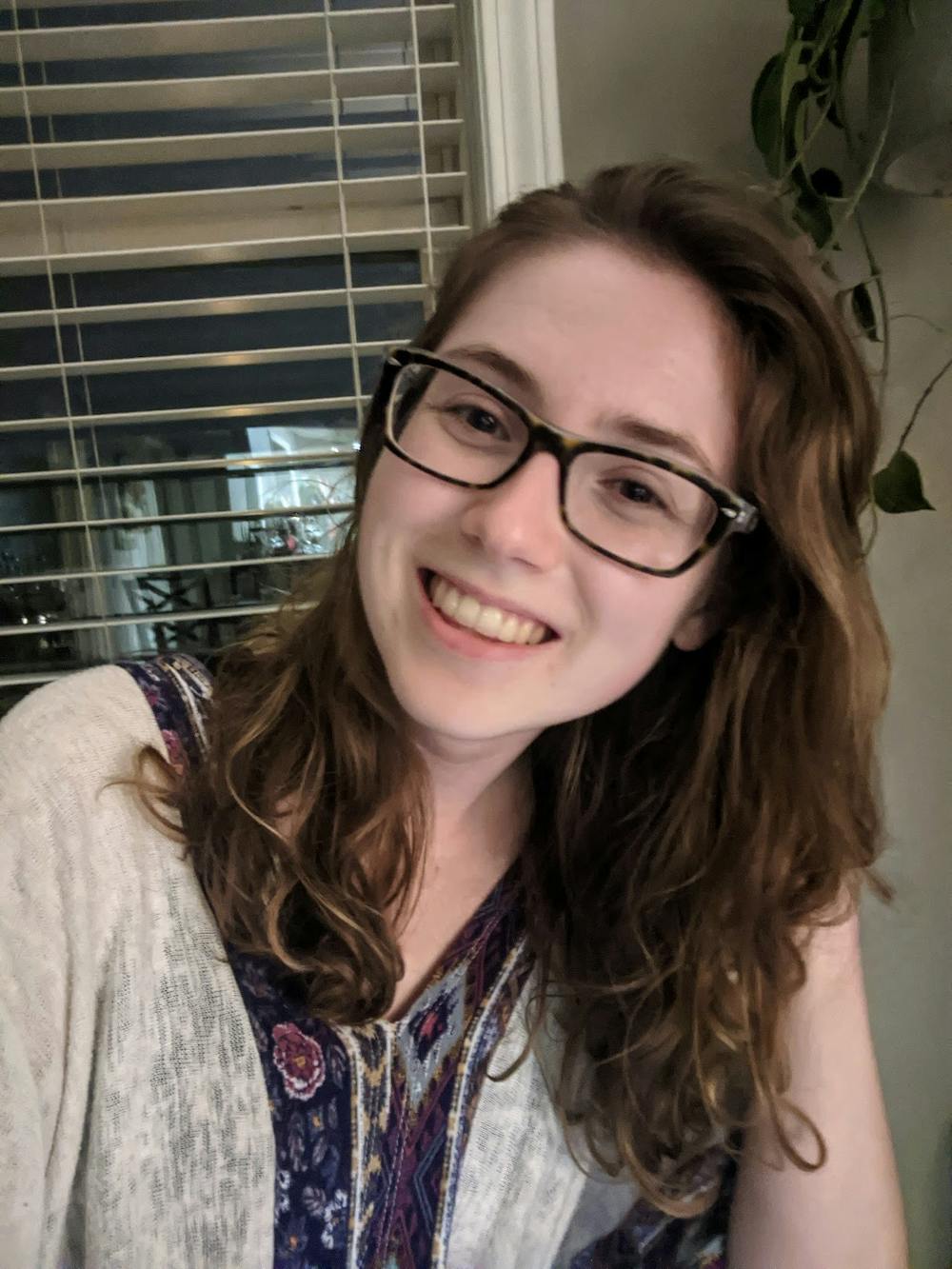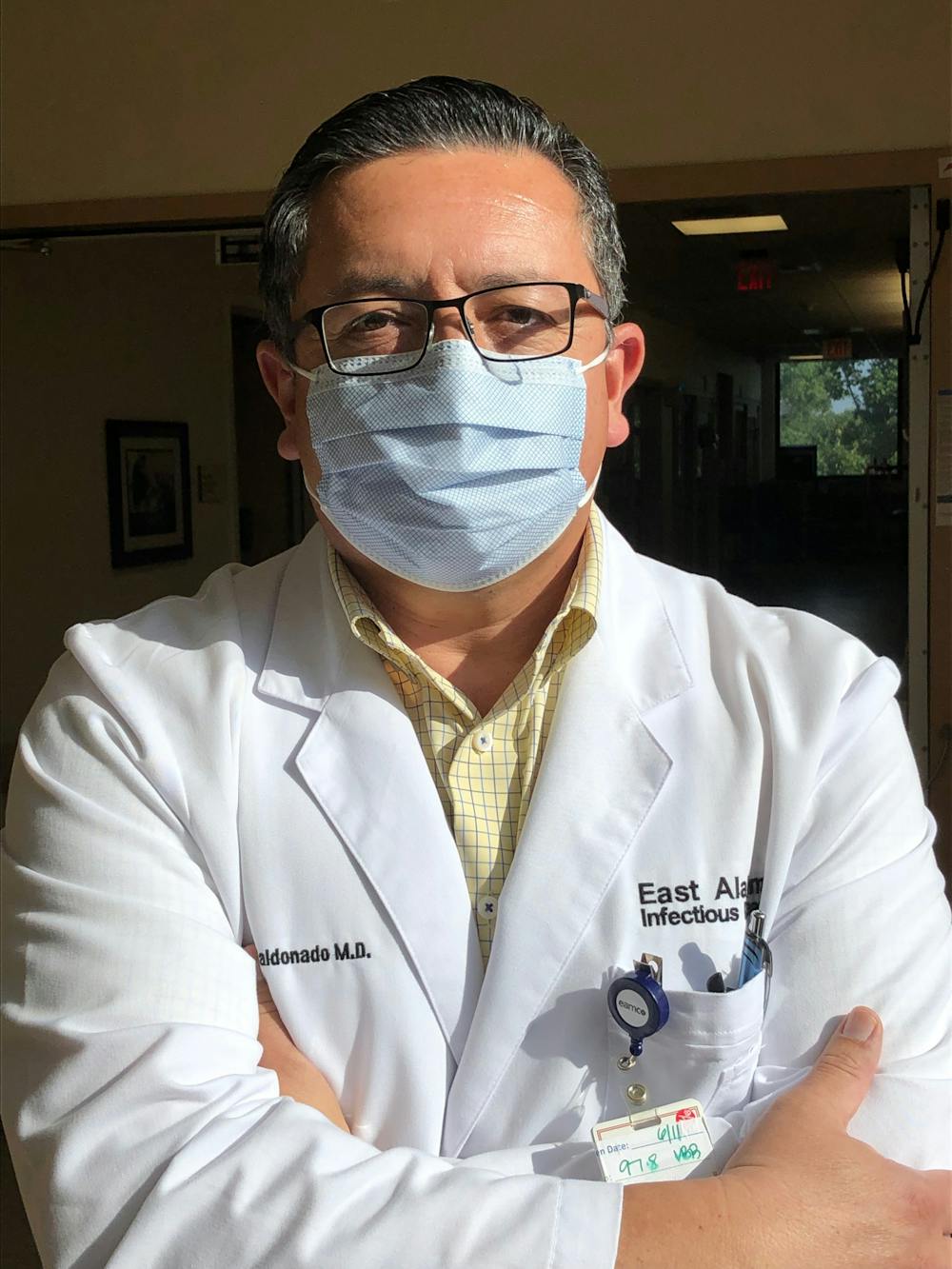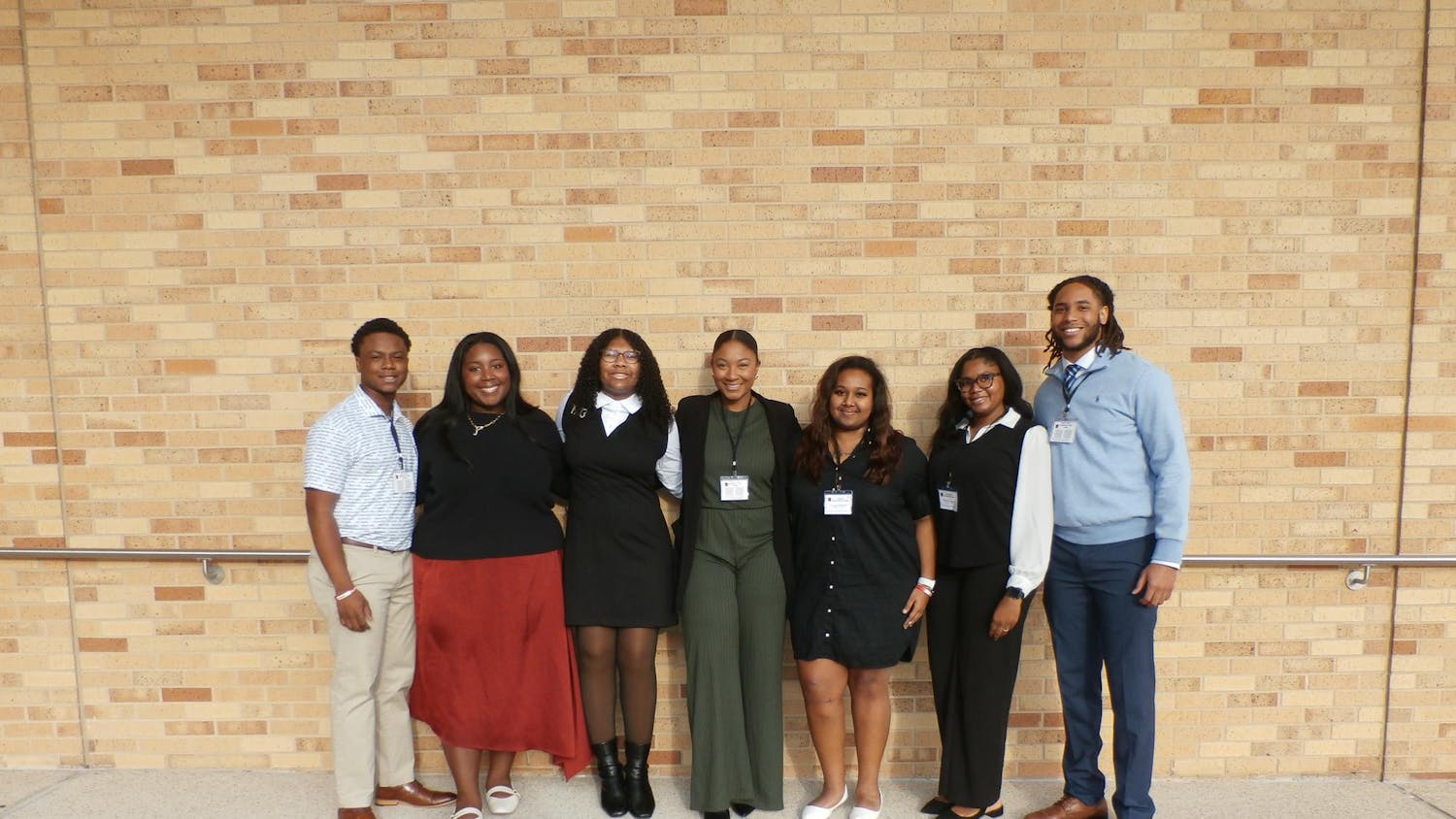Decades ago, the dean pointed to the back of the lecture hall asking, “Why do you go to med school?” He answered, “I think I was born to be a doctor.” The other students laughed. He said the funny thing was, he wasn’t joking.
Today, Dr. Ricardo Maldonado is the infectious disease specialist at East Alabama Medical Center. Before March 2020 he served 20 to 30 patients a day with various diseases. Ever since March 2020, he has served up to 80 patients all with one disease: COVID-19.
“There’s an emotional toll on this that people don’t talk about,” he said, beneath a pale blue surgical mask. “… I think that is what keeps me up at night – the personal tragedy and the level of stress.”
Dr. Maldonado begins his day at 5 a.m. after an unrestful night of sleep. As a dad, he fixes breakfast and takes his kids to school. Then, he reports to the Intensive Care Unit where he spends hours of his day. Dr. Maldonado said he takes each case personally, aware that each patient is someone’s mother, father, sibling or best friend.
“I’m an emotional physician, and I like that about myself because I care about them,” he said. “The day I stop caring about patients or the day the outcome doesn’t affect me anymore, it’s time for me to stop doing what I do.”
From there, he sees non-COVID-19 infectious disease patients and treats more COVID-19 cases outside of the ICU. While he goes home in time to be with his family for dinner, Dr. Maldonado said it’s hard to leave work at work. Many evenings he reviews medical records before going to bed.
“I know professionally this is a legacy for me, so I take this almost personal,” Dr. Maldonado said. “… I want to be sure that the legacy says I did the best I could.”
In 2020, Dr. Maldonado said he had two breakdowns in private: first in March and the second in August. At first, it was the unknown of the virus. In August 2020, it was due to the death of a prominent community figure.
However, Dr. Maldonado came across Winston Churchill’s speech “We shall fight on the beaches.” He played it every day driving to the hospital and back. In the speech, “bitter weeds” symbolize the perseverance of Englishmen. He said the “bitter weeds” reminded him of his own stubbornness and inner strength.
Now it’s different, he said. Recently, a friend asked him if they had any breakthrough yet and he replied we have. It’s the vaccine. During the summer, COVID-19 hospitalizations reached as low as 22, according to East Alabama Health’s COVID-19 chart. Dr. Maldonado said it felt like the pandemic was almost gone.
With the delta variant and low vaccine rates, cases increased again in August 2021. On Sept. 27, 2021, EAMC reported all the patients in the ICU were unvaccinated. Dr. Maldonado said these cases are more heartbreaking knowing the vaccine is available.
“I just do what I need to do – still try everything I can to save their lives and at the same time find the time to send my community a message that hopefully will change one person’s mind,” he said. “If I change one person’s mind, that’s a success – to get the vaccine and prevent them from getting very sick.”
Dr. Maldonado writes press releases on the vaccine, as well as responds to emails and Facebook messages from the community regarding COVID-19. Dr. Michael Roberts, chief of staff at EAMC, said Dr. Maldonado has taken on an educator role for the community – going beyond what’s expected of an ID specialist.
“It’s hard to explain how crazy his work life has been for the last 18 months because no matter what the question is regarding COVID everyone’s response is, ‘well, have you talked to Ricardo yet?’” Dr. Roberts said.
Dr. Roberts said Dr. Maldonado pushed for pandemic plans at the hospital in December 2019 and has led the way ever since. Dr. Roberts said he believes Dr. Maldonado makes it “part of his personal responsibility” to get everyone through this time.
Additionally, Dr. Maldonado works as the medical director for Brooke Bailey, director of infection prevention and employee health for East Alabama Health. Working with him for the past 11 years, Bailey said she views him as a compassionate person by how he approaches the staff to how he cares for patients.
“This has been the most stressful time in his whole career, in all of our careers, but yet that did not change how he practices medicine,” she said.
Dr. Maldonado said part of his drive is passion. Growing up in Peru, his mother told him he had two options: to join the military or become a doctor. At the age of 12, he decided to volunteer at a Red Cross health clinic. Later, he attended medical school at Universidad Nacional Mayor De San Marcos.
“Medicine is my job; no, it’s really not,” Dr. Maldonado said. “My life is medicine. When I sit down with my friends, they ask me about my retirement plans. I’m like no, I don’t have a retirement plan. Why? I’m not planning on it.”
Do you like this story? The Plainsman doesn't accept money from tuition or student fees, and we don't charge a subscription fee. But you can donate to support The Plainsman.

Abigail Murphy, senior in journalism with minors in history and women and gender studies, is the operations managing editor at The Auburn Plainsman.





